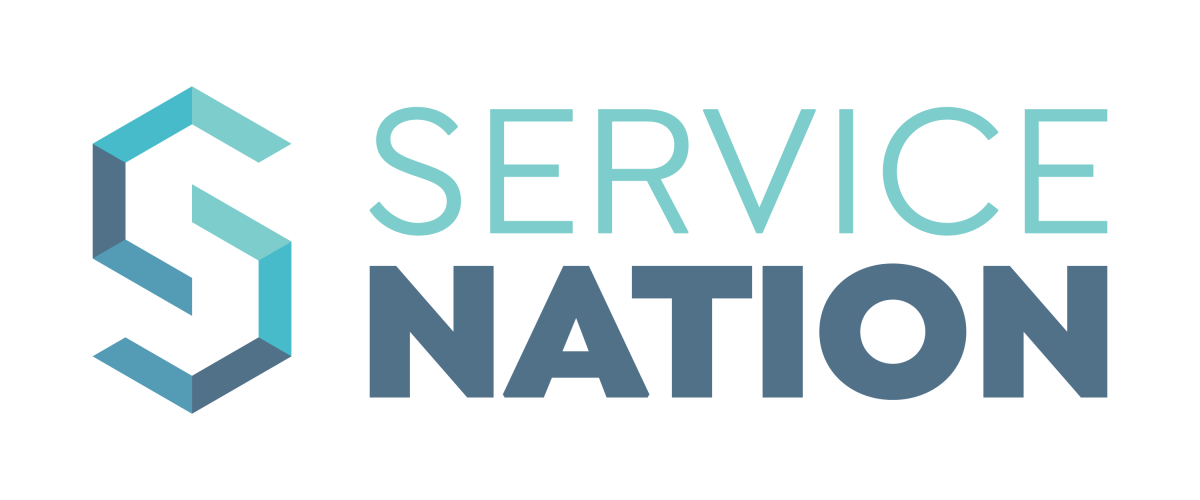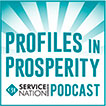David Heimer: And then was Stark Air the second company?
Ben Stark: Yes, after I sold Air Experts, I sold it to a consolidator and I went to work for them for about three years. And that taught me a lot about how to work outside of being a business owner and how to learn to be a good manager. So the next company was Stark Air. That when I started kind of with a little bit different concept is I kind of planned the end before I even started the business. So I took a little time off, planned the whole structure and the life of the company. And we sold Stark Air in 2012 to a private equity group that owned the loan, but I individually kind of ran the company for. And that was a pretty nice adventure by far the fastest growth achieved in a lot of areas, just because of. I think the planning aspect of it prior to starting the company.
And we sold that in 2012 and actually the third company. I had a five-year non-compete so I just took time off and did a lot of consulting work, the Service Nation Alliance and a lot of other people on an individual basis. Until I got free of that in 2013 when we started Sunny Service, which is the current company. I’m still actually working for it, although I don’t own it. And Sunny was very unique. Again, we planned it before we started. It grew for three to four years and very opportunistically was able to sell it probably due to the infrastructure we built in the business that really allowed the business to grow, even after we’ve sold it and still working for the people. And that kind of brings me current with where we are right now.
David Heimer: What a fantastic history. You’re such a wealth of knowledge about all this. I think that there’s a lot of confusion in our industry and I think a lot of business owners if they’re thinking about selling their business eventually, and I think a lot of people don’t really start thinking about that until it’s too late. But for those that are thinking about it, I think they’re confused about what they need to and what they need to know. So could you help us out on that just a little bit? Like what does a business owner of a residential service business need to know before selling his or her business?
Ben Stark: I think number one is read a lot of books. I think one of the best books I ever read was E-Myth and it really kind of taught me how to think outside the box. I know that as young businesses, owners wear a lot of hats in the business. They’ve always got to take time to make sure that they’re focusing on that key position in the business, which is the visionary. And the visionary has got about three or four very critical roles in growing that business. One is keeping a pulse on the marketing of the business. It’s got to look at the business from 10,000 feet, which is planning the business and making sure it’s structurally sound. It’s acquiring good middle management people that can carry out the vision that you’ve set for that company.
And once you do those things, the fourth big part of what you do is systems and processes and developing systems and processes. I think as the visionary role in the company, when you’re wearing just that singular hat, you’ve got to be focused on growing this infrastructure of good strong managers that can carry out if you’re not there, whether you’re on vacation. What if something were to happen to you in the company? It couldn’t just drift. You’d have to have a good plan. So along with that vision, we do very strategic, annual planning. We develop relationships, strong relationships with vendors so that we rely on them. It’s not just what we can get out of our vendors. It’s also, how can we help our vendors? And it’s kind of like a two way street. You can’t look at it as just take, take, take from those guys. You also have to be able to give back and help them grow. So it’s a good relationship.
David Heimer: And partnership.
Ben Stark: And if you focus in those areas, when you’re developing and growing this business the transfer of business is not necessarily that hard. I think everybody knows and understands at least they do in my business. You can focus on the entity and it’s not really who owns that entity. We’re all going to work there for a number of years, hopefully, and continue to develop that entity. And it doesn’t, like I said, it’s not really that important who owns it because it’s more of how you grow it and how you develop it. That builds the wealth and the value of that entity. And everybody involved has a family or friends and things like that that you still got to work with. And the entity is there to help nourish people’s personal lives in the long run. So if you focus on that, when you’re looking for the opportunity sometimes it comes along, it’s a good opportunity to take it. Sometimes it may be a necessity that you’re wanting to sell that entity, but you’ve always got to think about it as what’s the best thing for that entity and how are you developing it so that it’s attractive. Not necessarily just you or just an outside buyer, but it’s attractive to the industry and the community you’re involved with.
David Heimer: So who buys residential service businesses, and what are they looking for? What makes it attractive to them?
Ben Stark: Well, there’s several different views on that. Of course, there’s the neighboring competitor that’s interested. I think they are always growing in their business. And sometimes, again if you’ve built your business and it’s attractive anybody would like to have it. So there’s the competitor, there’s the individual out there that’s just looking to buy something to help his portfolio grow as kind of like the individual investor. Then there’s really kind of the outside entities. The venture capitalists that are looking to develop a large portfolio by bringing your business into theirs and growing it. And somehow another, reselling it eventually in the industry. Maybe to a bigger industry, somebody that maybe in everything they do is like the home service industry. And it might not just be HVAC, plumbing. It may be electrical or maybe sprinkler systems. It could be anything that they’ve kind of built as a way to grow and turn this over to even a larger corporation.
David Heimer: Do you feel that any one of those three is a better buyer that is that you’re likely to get more value or the transaction is going to be easier with any one of those three?
Ben Stark: Probably depends on the stage of your company. I was really fortunate in my last company that we were very attractive because of our middle management and our growth pattern. We were already gone, in three years we’ve gone from zero to almost 3 million a year in a very quick amount of time. So we had a nice infrastructure in our company with the right managers to grow and to develop. So we were attractive to what normally wouldn’t have been even considered a small business. But I think the smaller businesses when they’re younger, under $5 million are probably either the competitor acquiring them or an individual that’s trying to grow, maybe several small businesses to sell to a larger business eventually is kind of attracted to a small company.
However, once you get past that five up to ten and above million dollars a year company, I think the venture capitalists are probably much more opportunistic because they actually have the cash to invest and sell them. So they want to buy the whole business. They want to keep you involved almost all the time because they feel that if you step out the company takes a dip and they don’t want to have to worry about rebuilding that dip if you lose a lot of people or something like that, if the owner walks away. So I think it depends on what size of business you’re trying to market that you really look at who you’re trying to sell to.
David Heimer: If you have built your company up and you’re selling. Let’s say you’re in that 5 to $10 million range that you just referenced. And you’re selling to a private equity venture capitalist organization, and they want you to stay on to help run it. What does that look like? How do they keep you engaged and involved? And typically how long do you think that ends up being for most people?
Ben Stark: I think it depends on a lot of things, but I think most people would like to keep the owners involved for three to five years afterwards, especially the venture capitalists. Because they don’t want to have to come down and change a lot of things and keep it growing. They want you to be vested in the company. So if the company does better they give you a certain amount of stock. When that grows and multiplies you’ll do better off of it as the previous owner. They also probably give you better than your normal salary was when you were working there, just because they can free up a little bit more cash. They’ve got a lot of things going as far as they have that supplies you with a lot of things that make your company more profitable, for instance, national buying power and things like that.
David Heimer: Yeah.
Ben Stark: So it brings a lot of things into the table that reduces the cost of doing business. So they can put a little bit more money into the business and make it a much better-structured company in the long run.
David Heimer: So you sold your first business in 1997. You sold your last business 23 years later. What has changed if anything, in that period of time about buying and selling businesses?
Ben Stark: Venture capitalist has definitely got smarter. I think you could say that the first wave of consolidation was something where they had a lot of money. They just went to the stock market and became a viable money that has a lot of cash available to them. So a lot of times they overpaid for those businesses. In my first business, we got better than 10 times multiples of our earnings on the purchase of our company. And a lot of it was stock. And if he didn’t get out of it at the right time, you took the hit if it went down. But we were lucky enough to get out of it. So the things that have changed today, the market dipped pretty drastically in the mid-2000, 2005, 2008 or 9. And the multiples of return on the profitability of the company probably dip to about two to three times earnings in that time period. Luckily when I started selling mine in 2012, they’d gone back up to about five-plus times earnings. And today they’re fluctuating. If your company has a very good track record of financials, you can back up everything you’ve done for at least three full years about profitability. And when they do their due diligence, they dig very deeply into your company. So they really do know what’s going on.
So again, developing these relationships with vendors and people like that. That helps you run your business better and keep a better track record. The better you’ll do when you’re ready to sell. Today the multiples of earnings are kicking back up. In most cases three to five-plus could be back up to almost ten in some cases I’ve heard. But I haven’t really seen the documentation on that, but people are saying that’s going on out there right now. But the problem with any of that is the more the buyer trusts you, probably the higher, your multiples of earnings are going to be. Because if they don’t see a good track record of every single dime you spend in your company and you have to make sure you separate yourself personally, from the business, do that crossover and use it as a tax shield. Sometimes your business, which a lot of people do to reduce their taxes, will reduce the trust that a buyer has in what you’re doing.
So it’s very, very important that any time you buy something and it benefits you personally on your taxes, you better make sure that you’ve got very detailed documentation on why you did this and how you did it. Because that’s something that could really drive your earnings up or down, depending on how it’s put out there. So I guess for instance, if you own the building and you put a new roof on it and you had the company pay for it and you didn’t justify that in your financials and put it as what we call a non-recurring expense. That’s something that buyers may look at as a dip in profit and not want to pay you multiple profits. However, if you document it right, make sure that everything is very forward in what you do and it’s saturated financially, it’s something that they’ll include. And another thing it could be like with inventory, I bought a large supply of R 22 when the price was relatively cheap. I stored it in my warehouse and because I documented it and made sure that they knew and understood what it was when I sold my company. I was able to get multiples of profits off of that investment that I made smartly at the right time. So documentation, non-recurring chargebacks are all very critical when you’re looking at them evaluating how much they’re going to give you for your company.
David Heimer: That’s gold Ben. For somebody that’s selling their business or thinking about selling it into the future, that one little piece of information there could make a huge difference in the sale price, couldn’t it?
Ben Stark: It made hundreds of thousands of dollars. Yes, definitely.
David Heimer: Awesome. Well Ben this has been fantastic. Do you want to give any contact information if people want to contact you?
Ben Stark: Sure I’ll even plug our book. Go Time is our new book that’s coming out and Go Time Success group is our training entity. We are a preferred vendor and you can contact me. It’s ben@gotimesuccessgroup.com.
David Heimer: So ben@gotimesuccessgroup.com and you’ve got a book coming out. I’ve seen pieces of this book, it’s with you and Chris Hunter, right?
Ben Stark: Yep. Chris Hunter and they brought the {inaudible 17:15} and it’s kind of sewed it all together for us. Very good book. I think it’s going to be a huge game-changer for people who will try and grow their businesses. And I think It’ll be very valuable to most people.
David Heimer: I’m looking forward to seeing that. That’s great. Well Ben Stark thank you so much for doing this. You are an icon of the industry and I really appreciate you spending this time with us. Thanks so much.
Ben Stark: Thank you, David. Appreciate it.
David Heimer: We’re always looking for good ideas and interviews for our, if you have an idea or maybe you think you should be interviewed, just shoot an email to profilesinprosperity@serviceroundtable.com. That’s profilesinprosperity@serviceroundtable.com. If you think what we’re doing has any value, it would be very helpful if you would give us a great rating on iTunes. Thanks for your support. Hope to see you again soon. Bye.





 (877) 807-0869
(877) 807-0869 Member Login
Member Login

